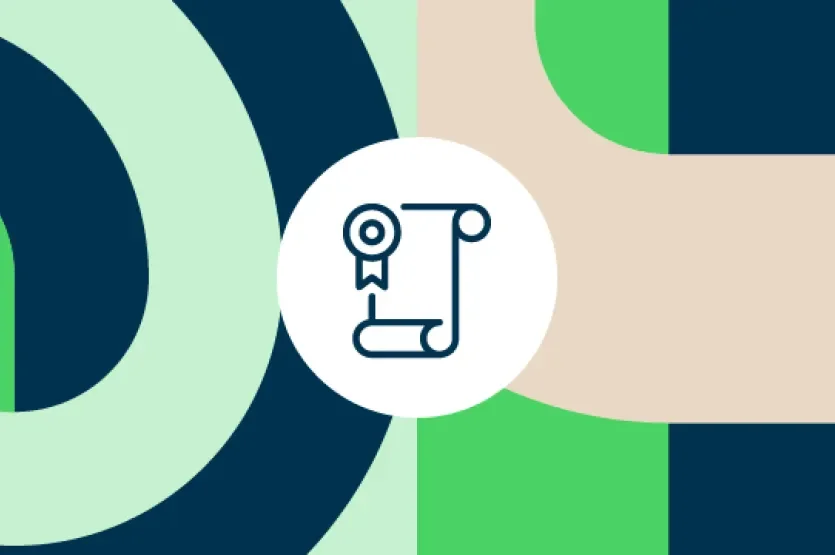Overview
This programme will see you gain the skills and knowledge you need to work with a diverse range of clients with complex and multifaceted needs.
During the course, you’ll study evidence-based, flexible and responsive psychotherapeutic approaches to help you support and treat adults with psychological issues. You’ll also complete modules on adult intimate relationships and psychosexual wellbeing, meaning once you graduate, you can work with couples as well as individuals.
Learn essential skills and get hands-on experience
You’ll learn essential skills and core competencies to help you practise safely and establish good relationships with your clients. You’ll also get to complete clinical placements in a public sector or voluntary organisation to gain practical experience.
Once you complete the course, you’ll be sought after for roles including counsellor or psychotherapist in public or private healthcare, education or other organisations.
Why DCU
Careers & Further Options
Careers
There are career prospects for counsellors and psychotherapists within the Statutory, Education, Voluntary and Private sectors. Due to the programme's specialism, you will find specialist psychotherapeutic practice with individuals and couples.
Alternatively, researchers in qualitative, quantitative and mixed methods research projects are always in demand.
"DCU graduates are highly sought after by employers. Our Graduates work in environments ranging from large multinationals to SMEs, family businesses and start-ups across every sector.
DCU Careers Service has a number of learning and development initiatives in place for our students, giving them the skills they need for a successful career path."
Entry Requirements
For admission to the M.Sc. in Psychotherapy, entrants will normally:
-
Have a relevant level 8 undergraduate degree (on the NFQ: National Framework of Qualifications; or its equivalent outside of Ireland; for example, in social care/work, psychology, nursing, education, etc.)
-
Have completed a minimum of one year's recent relevant professional experience in a caring or mental health helping role, which has included some training and supervision (for example, voluntary counsellor/helpline work, social care, nursing, special needs teaching or guidance counselling, psychology assistant or pastoral care experience). This year of experience should be completed prior to application. The majority of this experience needs to have been working with adults and be based on real time verbal communication (in person or by phone/video, but not text or email communication
-
Recognition of Prior Learning (RPL) applicants are required to submit a cover letter along with their application under the Transcripts section of the portal, affirming their intent to apply for RPL. For more information on RPL see here
-
Be able to establish and demonstrate reflective capacity, personal readiness, and professional suitability for psychotherapy training
-
Successfully undertake a selection interview
Due to the specialist nature of this programme, additional criteria may be used to assess suitability to undertake this programme. For further information, please contact the Programme Chair using the contact details above.
Programme Structure
The MSc in Psychotherapy is a four-year part-time professional training programme at Level 9 NFQ (120 credits). Students may exit after two years with a Graduate Diploma in Psychotherapy (60 credits; although please note that the Graduate Diploma is not a qualification to practise psychotherapy).
The MSc programme is an integrative psychotherapy training programme, focused on working with adult clients (individuals and relationships); not for working with children or adolescents, as this would involve further or more specialised training. Our programme is integrative in comprising of and holding instruction and in-formation within the theories and practice of humanistic, cognitive-behavioural, psychodynamic and systemic approaches.
The MSc programme fosters an inquiry-based attitude in psychotherapy theory, practice and research. This integrative psychotherapy programme provides students with an opportunity to work psychotherapeutically with a diversity of clients with complex and multifaceted needs and intends to hold equality, diversity and inclusion as a core principle for staff, students, clinical training and thus clients.
Students will also be able to develop specialist expertise in particular fields of psychotherapy - including relationship therapy, psychosexual therapeutic practice and working with trauma.
It also includes supervision of research and clinical work to facilitate completion of a research project and a professional practice portfolio.
The MSc programme is designed to equip students to undertake therapeutic practice with individuals and relationships. The course is delivered in Dublin City University via block teaching (approximately three days per month) over the academic year September to May.
Time commitment:
|
Online/blended/in-person: |
Blended |
|
Day/evening/weekend: |
Day time |
|
Number of days on campus per semester: |
10 - 15 |
|
Typical days(s) of week on campus: |
Wednesday, Thursday, Friday and Saturday |
|
Typical hours per day on campus: |
6.5 |
|
Independent learning time - hours per week: |
14 - 21 |
|
Additional information: |
Teaching is normally delivered in five two/three day blocks per semester. Blocks are usually Wednesday-Friday/Thursday-Saturday every two/three weeks. Between 3 and 6 days per semester are being proposed for live delivery online. |
Please note this information is indicative only and subject to change.
Fees and Funding
Fees
How To Apply
All applicants must submit:
-
All Applicants must apply through DCU's Student Application Portal which is available here. Here's a quick step by step guide if you need help with your application.
-
Academic Transcripts for each and every year of study with English translation if applicable.
-
Copy of passport
-
Certified copy of parchment / degree certificate
-
Personal Statement outlining both your personal and professional motivations for applying to this course, what brought you to this point, what you would want from the course, and after, making explicit within this what psychotherapy means to you and for you." (800 to 1000 words max)
-
Two references using the required templates on this webpage (one academic & one professional) - Please see application for details.
-
If applicable, provide evidence of competence in the English language as per DCU entry requirements. Please see link http://www.dcu.ie/registry/english.shtml.
*International candidates are expected to have educational qualifications of a standard equivalent to those outlined above. In addition, where such candidates are non-native speakers of the English language they must satisfy the university of their competency in the English language. For further information on international applications click here.
Please note if you are a non EU student and require a study visa, you are not eligible to apply for part-time programmes as study visas are only granted for full-time programmes.
Application Deadlines
Applications will be accepted on a rolling basis until the programme is full or until the following dates:
- Closing date for EU applicants is 28th February 2025.
- Closing date for non EU applicants is 28th February 2025.
- All required documentation to support an application must be submitted by 28th February 2024.
Application Queries
For EU applicant queries, please visit https://www.dcu.ie/registry/eu-postgraduate-taught-admissions or email postgraduateadmissions@dcu.ie
For non EU applicant queries, please visit https://www.dcu.ie/registry/international-admissions-undergraduate-and-postgraduate or email internationaladmissions@dcu.ie
Commencement of Programme
The programme commences in September 2025.
Deferrals
Deferrals after the acceptance of an offer are not permitted on the DC715 programme.
Life On Campus
At DCU, our students can expect a unique campus experience. We are known for our excellent teaching and learning facilities, our active clubs and societies, and our great social and sporting facilities. All this makes DCU an exciting place to be.
DCU has three academic campuses; Glasnevin, St. Patrick’s and All Hallows (both in Drumcondra), all close to Dublin City centre.
They can be reached by public transport, Dublin Bus and Bus Éireann, with our Drumcondra campuses a ten minute walk from Drumcondra Train Station. Glasnevin is a 20 minute walk from St Patrick’s and All Hallows. They are also linked by Dublin Bus.
Each campus has a library (O’Reilly, Cregan and Woodlock Hall), study spaces, restaurants, and on-campus residencies. There are sports facilities on Glasnevin and St. Patrick’s, and there is a dedicated sports campus, St Claire’s, located near Glasnevin on the Ballymun Road.
DCU’s 19,000 students have access to exceptional teaching and learning facilities across our three academic campuses.
These include modern learning theatres, research centres, a new media and TV studio, radio/podcast studios, computer suites and advanced labs in the areas of Languages, Engineering, Physics, Chemistry and Biotechnology, as well as a Sports Performance centre and a training hospital ward. In 2021, we opened our first virtual reality ‘Leadership Lab’, which is located in our Business School.
We continue to improve and update our facilities. For example, construction of a new world-class STEM facility is underway on the Glasnevin campus. With capacity for an extra 3,000 STEM students, this facility will advance DCU’s international reputation for excellence in science and health, computing and engineering disciplines.
Studying in DCU isn’t just about course work. The university is rich in student life and activities.
There are more than 140 clubs and societies for students in DCU, with ‘Clubs & Socs’ days taking place on both the Glasnevin and Drumcondra campuses at the start of the academic year. They span everything from rugby to rock climbing, anime to jazz.
For many students, sport is an important part of the DCU experience. DCU’s Sports Complex boasts a 25 metre swimming pool, fitness centre gym, all-weather pitches and squash courts, as well as soccer, GAA and rugby pitches. DCU Dóchas Éireann, the university’s GAA club, is the largest third level Gaelic Games club in the country. Meanwhile, DCU Athletics has been Ireland’s highest achieving university club for many years. And DCU has dozens of other clubs to get involved in, from Archery to Weightlifting.
The Glasnevin campus is home to our purpose built, state-of-the-art student centre, The U, which serves the needs of a rapidly growing student body. Here, you will find the Student Leadership and Lifeskills Centre, performing arts and cultural spaces for students and the wider community, and the Entrepreneurship and Innovation Hub. Also located on our Glasnevin campus is The Helix, our renowned performing arts centre.
On our St Patrick’s campus, we have the Java Student Hub, a vibrant, warm and welcoming space where students can meet for coffee, play music, use the projector to watch events, or just relax. The walls of the Java Hub were designed based on the cultural history of St Patrick’s Campus, including the special references to the notable sporting history and history of the arts.
We have a number of academic, professional and social supports for students.
Student Advice & Learning Skills Centre - Offers a wide range of supports and services to students and advice
The Writing Centre - drop-in writing workshops for students through the academic year
Maths Learning Centre - provides maths support for students of all ability levels with maths modules
Student Learning - facilitate the transition from passive to active learning for students at DCU, by teaching study skills, nurturing critical thinking and building student confidence.
Careers work with students to help them on their professional journey into graduate employment.
Our student support team offers a comprehensive support programme, helping students make that all important transition into university life and focusing on building confidence and skills which are key to success at third level.

DCU Glasnevin Campus
FAQs
The MSc in Psychotherapy in DCU is a four-year part-time professional training programme at Level 9 NFQ (120 credits). Students may exit after two years with a Graduate Diploma in Psychotherapy (60 credits; although please note that the Graduate Diploma is not a qualification to practice psychotherapy). The MSc programme is an integrative psychotherapy training programme, focused on working with adult clients (individuals and relationships); not for working with children or adolescents, as this would involve further or more specialised training. Our programme is integrative in comprising of and holding instruction and in-formation within the theories and practice of humanistic, cognitive-behavioural, psychodynamic and systemic approaches. The MSc programme fosters an inquiry-based attitude in psychotherapy theory, practice and research. This integrative psychotherapy programme provides students with an opportunity to work psychotherapeutically with a diversity of clients with complex and multifaceted needs and intends to hold equality, diversity and inclusion as a core principle for staff, students, clinical training and thus clients.
Frequently Asked Questions
-
How is the course accredited? The MSc in Psychotherapy is accredited by Dublin City University and therefore provides graduating students with an internationally recognised Level 9 qualification. While psychotherapy is a designated health service profession that is in the process of being regulated by CORU (the Irish regulatory body for health and social care professions), as statutory registration is not in place in Ireland as yet, DCU has course accreditation from two professional organisations, the Irish Association for Counselling and Psychotherapy https://www.irish-counselling.ie/ and the National Association for Professional Counselling and Psychotherapy http://www.napcp.ie/. Psychotherapists registered with professional organisations such as the IACP or the NAPCP are recognised by many state and private employers in Ireland. Students considering applying for accreditation with other organisations, within Ireland or beyond, need to inform themselves of those organisation’s requirements, and are advised to contact them in advance of taking our programme for clarification about whether and how they can get accredited after completion of the MSc. As an IACP accredited and informed course, we direct students and are guided in relation to their accreditation processes
-
How and when are lectures scheduled? The DCU academic calendar runs over two semesters, each semester normally running over a 12-week period (from September in semester 1 and from January in semester 2). Typically, there are 10 3-day blocks of face-to-face teaching for the first two and a half years of the programme, five in semester 1 and five in Semester 2 – these blocks normally occur about every 2-3 weeks during the academic year, usually on Thursdays, Fridays and Saturdays (however, this schedule is open to revision from year to year, and students will be given advance notice of an upcoming revision to the typical schedule). In this academic year 2024-25 this were four Wednesday, Thursday and Friday blocks for first years, with the remaining six being Thursday, Friday and Saturday delivery. For second years there were two Wednesday, Thursday and Friday blocks, with the remaining six being Thursday, Friday and Saturday delivery. The 2025-26 Calendar has not been decided as yet.
There are a reduced number of teaching days in the second semester of year three and in year four (The time commitment reduces from 2nd half of year 3 onwards (20 days year 3; 14 days year 4) However students also attend individual research supervision meetings during this part of the programme (approximately three times a semester). Face-to-face lectures, workshops, skills practice and tutorials are delivered in the School of Nursing, Psychotherapy and Community Health in DCU https://www.dcu.ie/snpch (Glasnevin campus). All teaching is supported by our online learning platform Loop. A sample timetable for year one is provided below as an example of how class times are normally configured. As this is a clinical training programme, students are required to attend a minimum of 80% of all module classes each semester, or else would be asked to repeat the module the following academic year, which would constrain their progression to the subsequent year of the MSc.
In academic year 2024-25 one teaching block per semester was delivered online, as IACP regulations allow for up to 30% of teaching delivery to be provided online. This also allows students experience and practice online practice, skills and the environment as since the Covid pandemic online/hybrid clinical work is expected of placements and employers in psychotherapy delivery and practice.
-
What are the entry requirements and how do I apply? For admission to the M.Sc. in Psychotherapy, entrants will normally:
-
Have a relevant level 8 undergraduate degree (on the NFQ: National Framework of Qualifications; or its equivalent outside of Ireland; for example, in an interpersonal personal health care discipline/discourse such as social care/work, psychology, nursing, education, etc.)
-
Have a minimum of one year's (by closing date for applications – February 28th in the application year) recent relevant professional experience in a clinical caring or mental helping role, which has included some clinical training and supervision (for example, voluntary counsellor/helpline work, social care, nursing, special needs teaching or guidance counselling, psychology assistant or pastoral care experience). The majority of this experience needs to have been working with adults and be based on real time verbal communication (in person or by phone/video, but not text or email communication).
-
Be able to demonstrate reflective capacity, personal readiness, and professional suitability for psychotherapy training.
-
Successfully undertake a selection interview.
Further details and direction to the online application portal is available at this link: https://www.dcu.ie/courses/postgraduate/school-nursing-psychotherapy-and-community-health/msc-psychotherapy. The application portal is normally open from November of the previous year, with a closing date 28th of February, and shortlisted, eligible applicants are invited for interview during March and April. Do please not that this is a very competitive process as the number of places available on the programme is restricted to meet student/lecturer ratios (currently we have an intake of 20 students per year, and students that have already deferred entry into the programme would have held a number of these 20 places). Please note that only applications that are fully completed by 28th of February can be considered.
Can I still apply if I do not meet the exact entry criteria? It is not possible to compensate for not having the required active clinical experience of having a minimum of one year's (by closing date for applications – February 28th) recent relevant professional experience in a clinical caring or helping role, which has included some clinical training and supervision. (see above)
It is also not possible to compensate for not having the required professional experience but if you do not have a relevant level 8 interpersonal personal health care degree, it is possible to apply for consideration of other relevant personal/mental health practice and qualifications, learning and experience through completing an additional Recognition of prior experience and learning criteria (RPL) application. The RPL application is submitted only after successful online application and interview for the MSc. However, it is important to closely review what is required in the RPL application form before submitting your online application to the MSc and to include in your personal statement your intention to apply through RPL, and on what grounds. Further information on RPL entry is available from the MSc programme administrator, Lilija Prialgauskiene (lilija.prialgauskiene@dcu.ie).
-
Can I apply if I am already accredited as a counsellor or psychotherapist but want to upgrade my qualification? Applicants who are already accredited as a psychotherapist or counsellor with a recognised professional organisation and who have relevant educational achievements may apply to enter the programme at year two or year three, through submitting an additional Recognition of prior experience and learning (RPL) application. The RPL application is submitted only after successful online application and interview for the MSc. However, it is important to closely review what is required in the RPL application form before submitting your online application to the MSc and to include in your personal statement your intention to apply to join the MSc in a later year through RPL, and on what grounds. The RPL form is available from the MSc programme administrator, Lilija Prialgauskiene (lilija.prialgauskiene@dcu.ie).
-
What are the fees and are there any additional costs? The programme fees are available at this link: https://www.dcu.ie/courses/postgraduate/school-nursing-psychotherapy-and-community-health/msc-psychotherapy#collapse-prospectus-requirements They are currently (2024-25) for those with EU Status €7,000 per annum and €13,400 per annum for those designated as non-EU Fee. These annual fees are set by the university and may be open to revision. There are additional costs for personal therapy and clinical supervision, as noted below.
-
Do I have to attend personal therapy? All students are required to attend 80 hours of individual personal therapy over the course of the four-year MSc programme (approximately 20 hours per year), which is an additional cost and time commitment to attendance at classes in DCU. Personal therapists need to be professionally accredited and meet requirements as set by DCU and the accrediting bodies (IACP and NAPCP).
-
Do I have to attend clinical supervision? Students attend group supervision within each of the 10 academic blocks in DCU during years 2, 3 and 4 of the MSc and is provided within DCU as part of the MSc programme. Students are also required to attend one hour of individual clinical supervision for every five client practice hours (60 supervision hours in total) during years 2-4, which is an additional cost and time commitment to attendance at classes in DCU. The programme team provide guidance on sourcing a clinical supervisor and supervisors need to be professionally accredited and meet requirements as set by DCU and the accrediting bodies (IACP and NAPCP).
-
Do I get help with sourcing placements? Students commence clinical placement following successful completion of the first year of the programme. All students are required to engage in an average of 100 hours of clinical practice during each of years two, three and four of the programme (total 300 hours). The programme team provide guidance on sourcing a clinical placement from the current list of approved placements or in gaining approval of a new placement. It is important to note that under current insurance requirements, students cannot receive payment for these clinical hours.
-
Can I undertake the programme if I am a non-EU student or if I’m not a native English speaker? DCU welcomes international students. Students applying from outside the EU are advised to contact the international office https://www.dcu.ie/international to have their qualifications verified by the university and to get information on living and studying in Ireland prior to application. Non-EU fees apply to international students whose definitions are decided by the university (see link to fees above). International students applying to take the programme should always check their national requirements for practising as a psychotherapist as standards vary from state to state. Students considering applying for accreditation with international organisations need to inform themselves of those organisation’s requirements, and are advised to contact them in advance of taking our programme for clarification about whether and how they can get accredited after completion of the MSc. Guidance regarding English language competency requirements and testing/certification are available at this link: https://www.dcu.ie/registry/english-language-requirements-non-native-speakers-english-registry
Academic Year 2024-25/ Semester 1 MSc in Psychotherapy Year 1
|
Blocks |
Day |
Time |
Module |
|
Block 1 12thSeptember |
Thursday |
10-4.30pm |
PPP1 PST1025 |
|
13th September |
Friday |
10-4.30pm |
Humanistic Approaches PST1001 |
|
14th September |
Saturday |
10-4.30pm |
Cognitive Behavioural Approaches PST1004 |
|
Block 2 25th September |
Wednesday |
10-4.30pm |
Humanistic Approaches PST1001 |
|
26th September |
Thursday |
10-4.30pm |
PPP1 PST1025 |
|
27th September |
Friday |
10-4.30pm |
Cognitive Behavioural Approaches PST1004 |
|
Block 3 (Online)17th Oct |
Thursday |
10-3.30pm |
PPP1 PST1025 |
|
18th October |
Friday |
10-3.30pm |
Cognitive Behavioural Approaches PST1004 |
|
19th October |
Saturday |
10-3.30pm |
Humanistic Approaches PST1001 |
|
Block 4 6th November |
Wednesday |
10-4.30pm |
PPP1 PST1025 |
|
7th November |
Thursday |
10-4.30pm |
Humanistic Approaches PST1001 |
|
8th November |
Friday |
10-4.30pm |
Cognitive Behavioural Approaches PST1004 |
|
Block 5 28th November |
Thursday |
10-4.30pm |
PPP1 PST1025 |
|
29th November |
Friday |
10-4.30pm |
Cognitive Behavioural Approaches PST1004 |
|
30th November |
Saturday |
10-4.30pm |
Humanistic Approaches PST1001 |
Academic Year 2024-25/ Semester 2 MSc in Psychotherapy Year 1
|
Blocks |
Day |
Time |
Module |
|
Block 6 16th January |
Thursday |
10-4.30pm |
PPP1 PST1025 |
|
17th January |
Friday |
10- 4.30pm |
Integrative Psychotherapy PST1023 |
|
18th January |
Saturday |
10-4.30pm |
Psychodynamic Approaches PST1003 |
|
Block 7 (online) 5th Feb |
Wednesday |
10-3.30pm |
Psychodynamic Approaches PST1003 |
|
6th February |
Thursday |
10-3.30pm |
PPP1 PST1025 |
|
7th February |
Friday |
10-3.30pm |
Integrative Psychotherapy PST1023 |
|
Block 827th February |
Thursday |
10-4.30pm |
PPP1 PST1025 |
|
28th February |
Friday |
10-4.30pm |
Psychodynamic Approaches PST1003 |
|
1st March |
Saturday |
10-4.30pm |
Integrative Psychotherapy PST1023 |
|
Block 9 19th March |
Wednesday |
10-4.30pm |
Integrative Psychotherapy PST1023 |
|
20th March |
Thursday |
10-4.30pm |
PPP1 PST1025 |
|
21st March |
Friday |
10-4.30pm |
Psychodynamic Approaches PST1003 |
|
Block 10 10th April |
Thursday |
10-4.30pm |
Psychodynamic Approaches PST1003 |
|
11th April |
Friday |
10-4.30pm |
PPP1 PST1025 |
|
12th April |
Saturday |
10-4.30pm |
Integrative Psychotherapy PST1023 |
Is DCU all one campus?
DCU is a multi campus university - the Glasnevin, St Patrick's and All Hallows campuses. The St Patrick's campus is where the Education courses are taught and some of the subjects from the BA Joint Honours degree. There is a 20-25 minute walk between the campuses but there are buses and bikes available to go between them also.
Click here to see maps of all of our campuses
If I'm studying on the St Patrick's campus, can I use the library and sports centre on the Glasnevin campus?
Yes, all facilities such as sports and accommodation are open for all DCU students to avail of.
Are there libraries in DCU and if they have wifi and work stations?
We have a brand new state of the art four floor library on our St. Patrick's Campus which complements the existing library on the Glasnevin campus. There is free wifi, work stations as well as desktop computers.
Does DCU provide accommodation?
DCU does have on-campus accommodation for undergraduate and postgraduate students, and you can find out more and apply via the Accommodation Office webpage.








